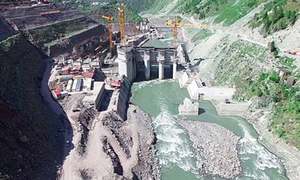
Moon Desk: In a major boon for Pakistan in its dispute over the ‘one-sided’ suspension of the Indus Waters Treaty (IWT), the Permanent Court of Arbitration in The Hague has ruled that India’s actions have no bearing on its competence to adjudicate the matter.
The court found that its competence cannot be affected by the unilateral decision of a party taken after the initiation of arbitral proceedings, regardless of whether India’s recent decision was characterised as a suspension of the treaty, or otherwise.
The court further found that it has a continuing responsibility to advance proceedings in a timely, efficient and fair manner, notwithstanding India’s position on “abeyance”. It also declared that these findings also apply to the Neutral Expert, appointed in separate proceedings.
The decision, which was hailed by Islamabad and “rejected by New Delhi, marks a major legal win for Pakistan. At the heart of the decision is a clear message that India cannot unilaterally suspend or sideline the treaty. The court based its ruling firmly on the treaty’s text, especially Article XII(4), which says the treaty stays in force unless both countries agree to end it through a formal agreement. This leaves no room for one side to walk away or put the treaty on pause. This is consistent with the provisions of international law, particularly the principle of pacta sunt servanda (agreements must be kept).
The ruling also emphasises the importance of the treaty’s built-in dispute resolution system. According to the court, letting one country unilaterally ignore the arbitration process would undermine the treaty’s very purpose. This reflects the principle that treaties should be interpreted in a way that gives their provisions real meaning and effect.
Crucially, the court has rejected India’s claim that it could simply pull out of the proceedings and halt arbitration. It has also reaffirmed its own authority to decide on its jurisdiction, pointing out that once the process has started, it can’t be disrupted by one party backing out. Friday’s decision by The Hague-based Court of Arbitration was a ‘Supplemental Award on the Competence of the Court’ in a matter initiated by Pakistan.
In these proceedings, Pakistan had requested the court to address the interpretation and application of IWT to certain design elements of the run-of-river hydro-electric projects (Kishenganga and Ratle) that India was permitted by the treaty to construct on the tributaries of the Indus, Jhelum, and Chenab, before those rivers flow into Pakistan.
In the unanimous decision, the court found that its competence cannot be affected by the unilateral decision of a party taken after the initiation of the arbitral proceedings, regardless of whether India’s recent decision was characterized under international law as a suspension of the treaty or otherwise.
Pakistan had initiated the present arbitral proceedings in 2016. Subsequently, India requested that the World Bank appoint a neutral expert (a highly-qualified engineer) to address certain design and operation questions that were essentially identical to some of the questions presented by Pakistan in its request for arbitration.
The government of Pakistan noted that the court had affirmed its competence in the light of recent developments, and that unilateral action by India cannot deprive either the court or the Neutral Expert, in the proceedings initiated by India, of their competence to adjudicate the issues before them.
Pakistan looks forward to receiving the court’s award on the First Phase of the Merits in due course following the hearing that was held in Peace Palace in The Hague in July 2024, a statement said. The high priority, at this point, the statement said, was that India and Pakistan find a way back to a meaningful dialogue, including on the application of the Indus Waters Treaty (IWT).





